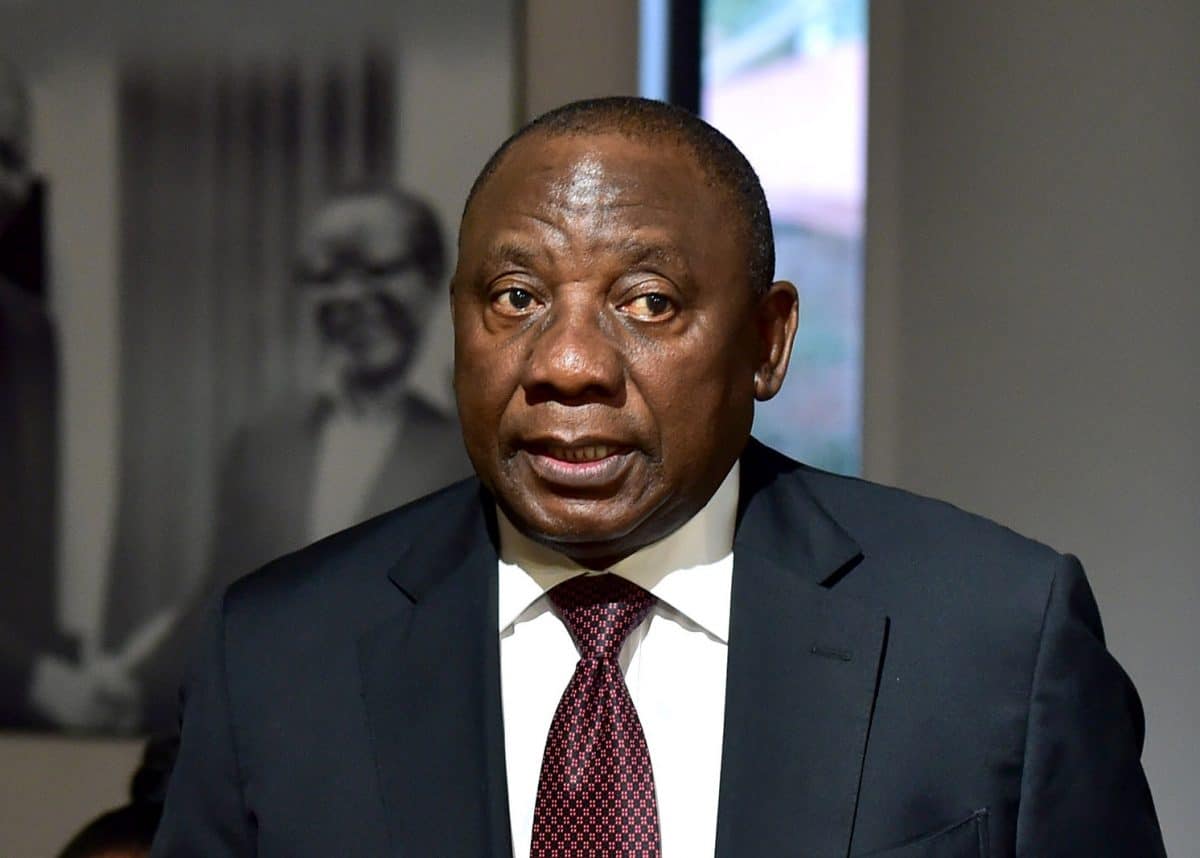SIGNIFICANT progress has been made in recovering the proceeds of crime, says South Africa President Cyril Ramaphosa, and the state needs to focus on strengthening law enforcement and protecting whistle-blowers.
In his weekly newsletter yesterday, Ramaphosa announced that freezing orders to the value of R13bn have been granted to the National Prosecuting Authority (NPA) and a total of R5.4bn has been traced and returned to the state.
This was a significant victory in the fight against corruption, he said. “This week, it is exactly two years since the state capture commission held its final public hearing.
Over the course of its work, the commission heard evidence from over 300 witnesses and collected more than 1.7-million pages of documentary evidence,” he said.
Ramaphosa lamented corruption as one of the greatest challenges faced by South Africa. “State capture was the orchestrated theft of billions of rand through the capture of state institutions.
Our country is grateful to the actions of many South Africans who, acting as individuals and through various organisations across society, exposed state capture and in many ways ensured that decisive steps are taken to end it,” he said.
The president said he submitted the government’s plan to parliament in October last year to implement the commission’s recommendations, and since then progress has been made to implement parts of the plan.
“The state capture commission made 205 recommendations on the criminal investigation and possible prosecution of people and companies implicated in evidence before the commission,” he said. To undertake this cleanup campaign, the NPA and the Hawks set up an integrated task force to co-ordinate investigations and prosecutions. Ramaphosa said there are currently nine cases in court involving 41 accused people and 12 companies.
Ramaphosa said despite Sars collecting unpaid taxes as a result of evidence before the state capture commission, and a necessary part of the government’s response to state capture being to hold those responsible accountable for their actions and to recover stolen money, they are also making far-reaching legislative and institutional changes to reduce the potential for corruption.
Eight of 14 new laws or legislative amendments identified in their implementation plan have been approved by cabinet and tabled in parliament, he said.
“These address areas such as public procurement, the involvement of politicians in administrative matters, the conduct of public servants, the intelligence services, money laundering and electoral reforms.”
Ramaphosa said a further six draft laws are in the process of public consultation with stakeholders, including further research being done on some of the recommendations of the commission, such as making the abuse of political power a criminal offence.
“The state capture commission also made recommendations about the establishment of additional anti-corruption bodies.
“These proposals are being considered as part of a broader review of the country’s anti-corruption architecture.” Part of this work is being led by the national anti-corruption advisory council, which is working to build ethical values and mobilise the nation against corruption, he said.
“The commission found that the public procurement system was the main site for the theft and abuse of state resources. In addition, the commission found that a lot of corruption takes place in state-owned enterprises (SOEs), which have large budgets.”
In response to the commission’s recommendations regarding the procurement system, the government submitted the Public Procurement Bill to parliament in May this year.
Ramaphosa said he hopes this draft law will increase transparency in procurement processes, introduce binding codes of conduct for people involved in procurement and improve processes to disallow suppliers who contravene procurement laws.
“The bill establishes the public procurement office within the National Treasury, with powers to issue legally binding instructions and powers of search and seizure.” Regarding the state’s entities in line with the commission’s recommendations, the state-owned enterprises bill is to align the pro[1]cess for the appointment of SOE boards and executive management with the recommendations of the commission, he said. — TimesLIVE




